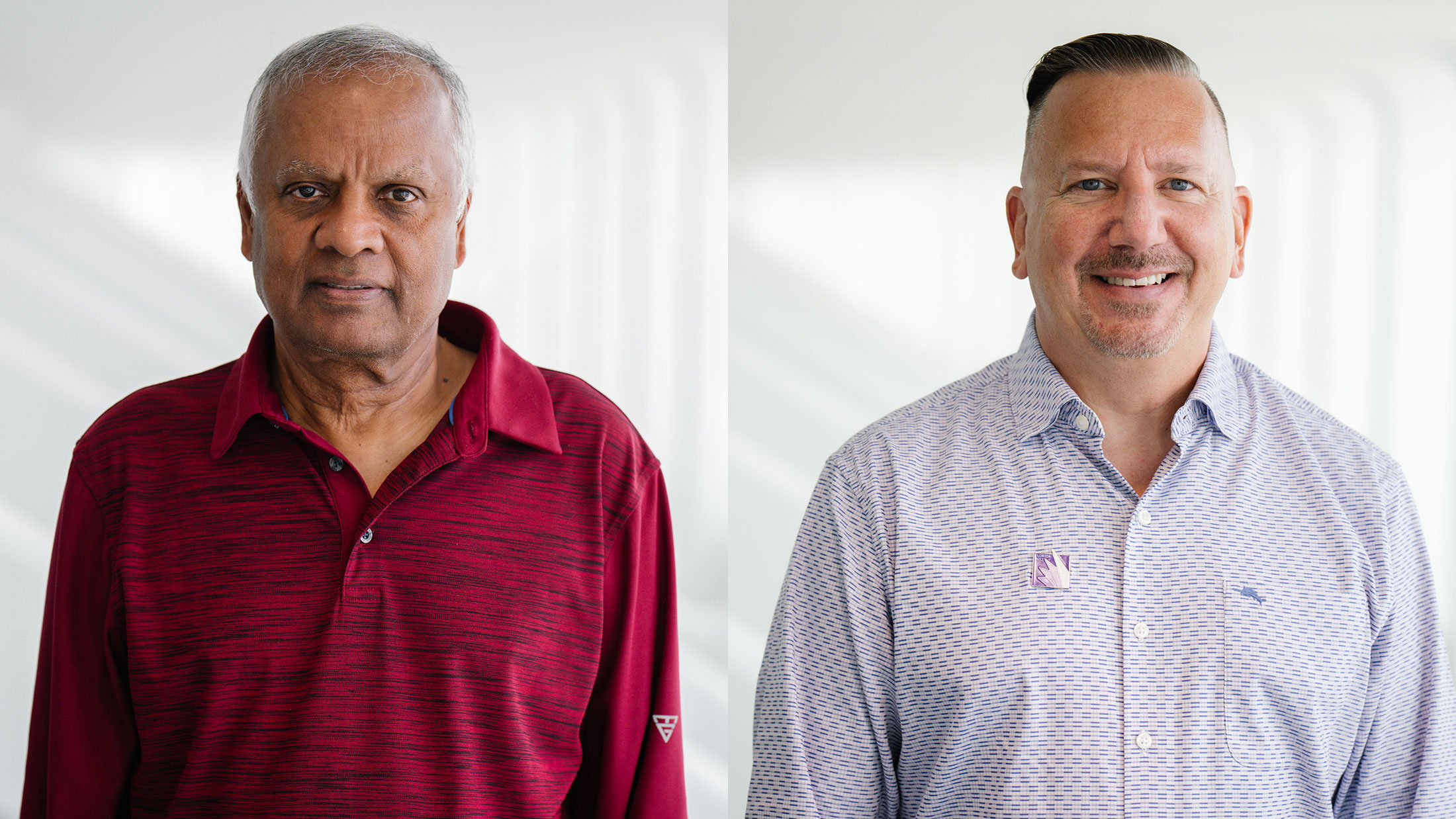
Florida Polytechnic University has hired two new department chairs. Dr. Asai Asaithambi, left, is chair of the Computer Science Department, and Dr. Paul Hettler is chair of the Arts, Humanities and Social Sciences Department.
Florida Polytechnic University has strengthened its academic leadership with the addition of two new department chairs, elevating the student learning experience with their expertise and vision.
Dr. Asai Asaithambi is the new chair of the University’s Computer Science Department and Dr. Paul Hettler now leads the Arts, Humanities and Social Sciences Department.
From his front-row seat in academia, Asaithambi has witnessed the dramatic evolution of computer science for more than 40 years. One truth across that time is the field’s fundamental quality of constant growth and change.
“The field is constantly expanding, so we need to be thinking about what our focus should be,” said Asaithambi, who most recently was interim director, graduate director, and professor at the University of North Florida’s School of Computing. “It’s exciting and challenging.”
Florida Poly’s major strengths in the field currently lie in cybersecurity, virtual and augmented reality, and artificial intelligence (AI) at large, he said, adding that enhancements can most logically be first made in these areas.
Asaithambi noted that as these areas continue to evolve, it’s essential to educate both students and the public on the ongoing developments and potential impacts of the computer science field.
“We think of computer science as a discipline that’s not clearly understood yet. There are always new things to be explored and new technology to be learned and created,” Asaithambi said. “Our professional responsibility is to make sure everybody understands what we’re doing.”
Among his goals as department chair are having Florida Poly designated as a National Center of Academic Excellence in Cyber Defense, offering more undergraduate research opportunities through National Science Foundation grants, establishing a seminar series, and increasing the department’s outreach efforts to schools nearby.
“Throughout my career, I’ve been building things up wherever I went,” Asaithambi said. “Florida Poly is still new, and we can shape it the way we think it should be. There is great potential here.”
As a behavioral economist, Hettler has keen insight into the science of decision-making.
“My field is the intersection between economics and psychology – we get into the hidden stuff behind what goes on in our brains for why people do what they do,” he said.
Hettler most recently was at Pennsylvania Western University, where he served as professor of economics, assistant chair of the Department of Business, Economics and Communication, and the chair of the Department of Finance, Accounting and Economics.
“We know that all our students at Florida Poly are STEM students, so we can really tailor what we do to the interest of the STEM population, building further on what we’re doing now,” he said. “Arts, humanities and social sciences shouldn’t be off to the side checking the boxes of what students have to do – it should be part of the foundation of what STEM students do.”
To accomplish this, Hettler said he would like to collaborate more closely with the other University departments and together develop general education electives that integrate with their efforts.
Additionally, since all students interact with the Arts, Humanities and Social Sciences Department to meet state graduation requirements, Hettler said a deliberate effort can be made to support the STEM departments’ instruction with both content and soft skills.
“We can model teamwork, interpersonal skills and how to write for different audiences,” he said. “My goal is overlapping what students are learning in other classes with what they’re doing in our courses.”
Contact:
Lydia Guzmán
Director of Communications
863-874-8557